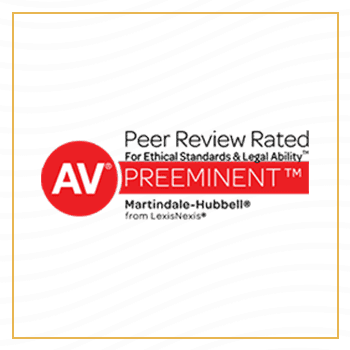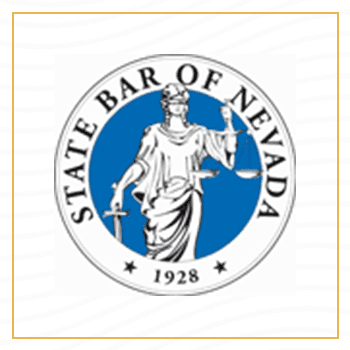
Business Interruption Claims in Las Vegas, NV
Let Our Las Vegas Insurance Attorneys Evaluate Your Policy
You’re a smart business owner, which means you purchased business interruption insurance. You might be here because you are wondering whether or not your insurance policy applies to a certain situation or because you are having difficulties getting the coverage you paid for.
No matter what you are facing, Burris & Thomas, LLC can help. We serve Las Vegas with over 45 years of experience and can make sure your voice is heard when insurance companies refuse to pay what you need and deserve.
Call us at (702) 529-3101 today for a free consultation.
What Is Business Interruption Insurance?
Business interruption insurance is coverage you can add to your property insurance policy or existing business insurance package. It accounts for situations in which your business is temporarily unusable due to a fire, flood, or another “covered disaster.”
Business interruption insurance compensates you for the income you would have earned were you not forced to vacate your property. It also covers operating expenses, like rent and power, that continue whether or not your business is up and running. Some policies also cover extra expenses, like the costs of relocating and/or rebuilding. Depending on the “restoration period” you paid for, the benefits of your policy could last up to 12 months.
Physical Damage and Other Covered Perils
Most business insurance policies are based on “physical damage,” which means your property is not physically usable while you are receiving benefits. Unless your policy has specific exclusions, physical damage could include anything that makes your business unfit for use – your coverage will depend largely on the way your policy is worded.
Your insurance contract may also include coverage for theft, acts of government, and infectious diseases. Conversely, your policy could exclude certain perils. More often than not, however, policies do not specify at all.
To figure out if you are covered, you will have to go over your policy carefully and pay attention to all relevant language. This process can be difficult, but our Las Vegas insurance attorneys can help.
COVID-19 Claims
On March 11, 2020, the World Health Organization (WHO) declared the novel 2019 coronavirus disease (COVID-19) a global pandemic. As a result, many states, including Nevada, issued executive stay-at-home orders that closed “non-essential” businesses and required residents to stay home.
Many small businesses, especially bars, restaurants, and boutiques, were devastated by this act of government. Now, business owners are seeking ways to keep their companies afloat.
The insurance industry estimates as many as 30 million business interruption claims from small business owners as a result of COVID-19. Many of these claims will be delayed, undervalued, or denied.
Unless your policy expressly prohibits infectious disease claims, these tactics are unacceptable and may even be considered insurance bad faith. Because the coronavirus contaminates surfaces and spaces, you may be able to make a physical damage claim against your insurance policy. Similarly, you could be covered under an “acts of government” clause or have coverage for losses inspired by “civil authorities” if an executive order barred you from accessing and operating your business.
Like any other claim, a COVID-19 claim will require you to evaluate your policy carefully and adhere to all language and exclusions.
The best way to get started is to let Burris & Thomas, LLC take a look at your policy.
What If My Claim Is Denied?
Insurance companies are notorious for handling emergencies poorly. Your insurer may deny valid claims in an effort to protect profits or use other bad faith tactics.
If you experience any of the following behaviors, do not hesitate to call our Las Vegas insurance lawyers:
- Failing to investigate a claim promptly
- Delaying a decision on a claim
- Significantly undervaluing a claim (the offer is within policy limits but does not account for your losses)
- Requiring excessive proof
- Denying a claim without written, reasonable cause
- Intentionally misinterpreting policy language
- Using manipulation, threats, or other abusive tactics
When you’re working with your insurance company and something doesn’t feel right, it probably isn’t. Firms like ours are here to help keep insurers accountable, so do not hesitate to…
Call Burris & Thomas, LLC Today
Our attorneys have recovered millions on behalf of our clients and treat everyone we serve with care, respect, and honesty. We are backed by more than 45 years of legal experience and use our resources and reputation to handle our cases with efficiency.
For award-winning legal representation in your business interruption insurance claim, please call us at (702) 529-3101 today or schedule your free consultation online.
Together, we can find a resolution!
Our FAQ
Have questions? We are here to help. Still have questions or can't find the answer you need? Give us a call at 702-529-3101 today!
-
How much is my case worth?
There are many factors that go into evaluating the settlement value of a personal injury case. It is not a simple matter of applying a formula. Typically, everyone thinks that their case is “simple” and “clear-cut”. Everyone tends to think that the amount of money they are seeking is “fair and reasonable”. That is human nature. However, the reality is that, in the end, a personal injury case is worth what a jury says it is worth. The job of the victim’s personal injury lawyer is to come up with a settlement that reflects the risk of going to trial (odds of winning vs. odds of losing), together with the range of what value a jury might actually return on the case.
In deciding settlement values, we need to consider the following:
- Is fault clear, or contested?
- Are the injuries severe or mild?
- Is there an issue with insurance coverage?
- Is the client a good communicator?
- Is the defendant/wrongdoer likable or unlikable?
Normally, I am able to give a very general estimate range of settlement value and odds soon after taking on a case, with the understanding that these are just estimates and not guarantees. The longer the case goes on, the more definite I can be about the settlement value range.
-
Do I have a personal injury case?
It is often times said by attorneys that in order for there to be a viable personal injury case, there must be “three legs on the stool.” These legs are: liability (or fault); damages (or injury); and collectability (insurance). If any one of the “legs” is missing, then there is not a viable case.
- Liability - A clear example of liability would be someone running through a red light. That person would be at fault. On the other hand, let us say that somebody is hit by a meteorite falling from the sky, and seriously hurt. In that case, although there is injury, there is no earthly entity at fault.
- Damages - An example of damages would be someone getting hit in the nose by an airbag, which breaks their nose. That person has an injury caused by the collision. On the other hand, what if that same person is almost hit by a car running a red light, but by the grace of God is able to avoid the collision? That person might say “I was almost killed, but I didn’t get a scratch.” In that case, the person was not injured and there is no case.
- Collectability - To give an example of collectability, imagine that a drunk driver runs through a red light, and the driver is Donald Trump. In that case, if Donald Trump hit and injured someone when he ran the red light, the victim will be able to collect upon any judgment that they receive. Imagine, on the other hand, that the drunk driver is someone who just got out of prison, and has no insurance and no property. Although that person will probably go to jail, there is no practical way to collect money from him, as he is a “scofflaw” living outside responsibilities of society.
-
What Is the Nevada Statute of Limitations for Personal Injury Cases?
When it comes to filing a personal injury lawsuit, it's important to pay attention to the statute of limitations for the state you're filing in. A statute of limitations is the time limit that a state puts on how long after your accident you are allowed to file a personal injury lawsuit. Statutes vary from state to state.
Nev. Rev. Stat. § 11.190(4)(e) (2016) states that individuals wishing to file a personal injury lawsuit must do so within 2 years of the date of their accident. However, there are certain exceptions that can be made depending on your circumstances. For example, if you have been injured as a result of medical malpractice, you generally only have 1 year to file your lawsuit after the date of your injury (Nevada Revised Statutes section 41A.097).
Statute of limitations can be complex, and if you fail to file your lawsuit within the allotted amount of time your case will most likely be dismissed. Don't put your compensation on the line! Contact our experienced Las Vegas personal injury attorneys today to schedule a free consultation and determine what your next steps should be.






